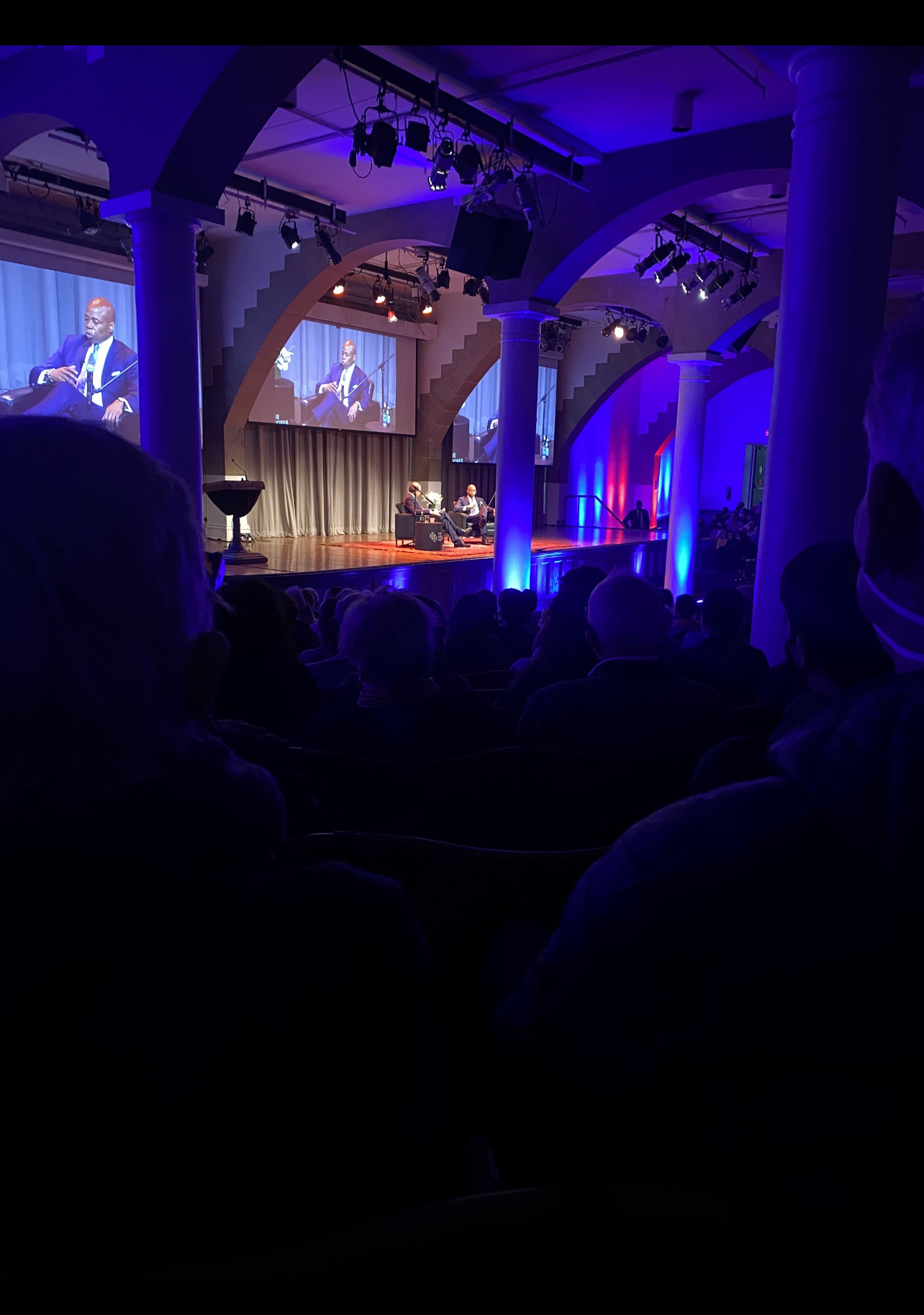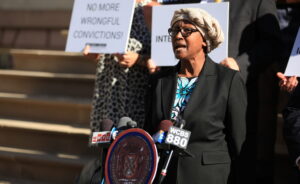
Mayor Adams and Preet Bharara
New York – On Tuesday, April 26, 2022, Mayor Eric Adams addressed hundreds of New Yorkers in The Cooper Union’s Great Hall. The former NYPD officer eloquently answered questions posed by former United States attorney general Preet Bharara about his new stance on the police department, remote working, the rising rate of crime in the city, unemployment, gun reform, mental health and safety, and education reform in public schools. Mr. Adams began by declaring his love for the city. According to Mr. Adams, a quote from the cap of a Snapple bottle said it best, “We are who we are because we’re made of the best stuff on Earth.”
Mayor Adams staunchly supported New York City police officers. Preet Bharara pointed out how that may be triggering to many residents of the city, passionate about the fight for social justice, and the unbalanced treatment of people of color received at the hands of law enforcement. Bharara mentioned that social media has exposed incidents of police brutality, resulting in the death of unarmed black men. “I support my police officers, but they cannot be abusive,” said Adams. Adams went on to share that he was arrested by police officers at the tender age of 15. “Instead of ‘woe is me,’ I thought, ‘why not me,’” said Adams. He shared that this incident was an inspiration for him, causing him to join the police force to try and change it from the inside out. The mayor stressed the importance of providing the police force with the support they need, while also holding them to a standard of justice and accountability.
The Mayor’s stance on the police presence in NYC was a liberal one. “Not every situation deserves a 911 call,” said Adams. Instead of calling the police on a family member suffering from depression, or maybe having a psychotic breakdown, calls can be made to a therapist, psychiatrist, or mental health clinic. This leaves the police department free to handle matters that require them, rather than be called to a situation where their presence will only agitate or escalate matters.
The 21st Century New Deal
Although Bharara seems to have an amicable rapport with our mayor, he maintained his direct line of questioning and boldly challenged Adams about strict policies that impact the homeless. Mayor Adams firmly responded that we owe all our citizens, regardless of their socio-economic background, dignity, and respect. According to Mr. Adams, there is nothing dignified about sleeping on a subway platform. The mayor talked about moving displaced people to the many shelters throughout the city, which provide clean beds, showers, free meals, public assistance benefits, mental health referrals if necessary, and access to a case manager. All in all, public health and safety will improve on the city’s public transport systems if appropriate assistance is provided to residents who require it. This problem cannot be ignored. According to Adams, “a city as large and diverse as New York, must run on systems and order.”
These systems include a plan for residents that have children. Mayor Adams enthusiastically mentioned childcare resources he has already initiated during the discussion. Limited access to affordable childcare has held back women in poor communities for years. On April 14th, 4 billion dollars was allocated in the state budget for childcare over the next four years. Tax incentives to increase the number of childcare seats in New York City were also authorized.
Talk of childcare led to talk of education reform for the children of New York. Mayor Adams shared that as a child, he suffered from dyslexia. He shared his plans to introduce dyslexia screenings in public schools to immediately identify students who require additional attention and a specific and intentional teaching regimen in consideration of their learning disability. “30 percent of the prison population is dyslexic,” said Adams. This is an important factor, as a lack of education stemming from a learning disability can be directly linked to incarceration.
During his address, the mayor promised to take the city of New York upstream, rather than downstream by focusing on intervention, and prevention. “We wait for children who are dyslexic to fall in the river, we wait for people to have chronic diseases instead of having preventive medicine in a real way.” According to Adams, his tenure will be focused on cleaning up the city and being an example for other states by increasing the standard of expected behavior in our city.
Mayor Adams closed by declaring, “we are about to universally transform how we exist as human beings.”
Thumbnail Credits: Adelola Tinubu
Editorial Credits: Afia Sengupta
Sources
- Adelola Tinubu and Afia Sengupta from Current Affairs Times attended the talk show and witnessed the conversation between Former US Attorney Preet Bharara and Mayor Adams.





